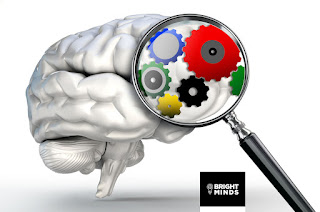The Future of Brain Health: An In-Depth Look at the Latest Advancements and Future Potential in the Field of Brain Health Research
I. Neuroplasticity: Unlocking the Brain's Potential: Neuroplasticity refers to the brain's ability to adapt and change throughout our lives. Researchers have discovered that the brain can reorganize itself, form new neural connections, and even generate new neurons. This groundbreaking finding has significant implications for brain health. By harnessing the power of neuroplasticity, interventions can be developed to enhance cognitive function, aid in recovery from brain injuries, and potentially slow down the progression of neurodegenerative diseases.
II. Personalized Medicine and Precision Brain Health: Advancements in technology and genetics have paved the way for personalized medicine, and this approach is extending to the field of brain health. Researchers are increasingly focusing on understanding the unique genetic and molecular profiles of individuals to develop tailored treatments and interventions. By leveraging precision medicine, doctors can provide targeted therapies that address specific brain health concerns, optimizing treatment outcomes and improving overall brain health.
III. Brain-Computer Interfaces (BCIs): Brain-computer interfaces (BCIs) are devices that establish a direct communication pathway between the brain and external devices. These interfaces hold great promise in the field of brain health. Researchers are exploring their potential in assisting individuals with neurological disorders, such as paralysis, by enabling them to control prosthetic limbs or communicate through thought. BCIs also have the potential to enhance cognitive abilities and memory in healthy individuals, opening up new frontiers in brain augmentation.
IV. Non-Invasive Brain Stimulation: Non-invasive brain stimulation techniques, such as transcranial magnetic stimulation (TMS) and transcranial direct current stimulation (tDCS), have gained attention in recent years. These techniques involve applying electromagnetic fields or weak electrical currents to specific regions of the brain. Research suggests that non-invasive brain stimulation can improve cognitive performance, treat depression and other mental health disorders, and aid in stroke rehabilitation. As advancements continue, these techniques may become more accessible and refined, offering exciting possibilities for enhancing brain health.
V. Artificial Intelligence and Big Data: Artificial intelligence (AI) and big data analytics are transforming various fields, and brain health research is no exception. AI algorithms can analyze vast amounts of data, such as brain imaging scans, genetic information, and clinical records, to identify patterns and provide insights into brain health conditions. This technology has the potential to revolutionize diagnostics, treatment selection, and prognosis prediction. AI-powered tools may assist doctors in making more accurate diagnoses and developing personalized treatment plans, leading to improved outcomes for patients.
VI. Lifestyle Interventions for Brain Health: Research has consistently highlighted the impact of lifestyle factors on brain health. As we look to the future, lifestyle interventions will continue to play a crucial role in promoting brain health and preventing cognitive decline. Strategies such as regular exercise, a healthy diet rich in brain-boosting nutrients, mental stimulation through cognitive activities, stress management, quality sleep, and social engagement are vital components of a brain-healthy lifestyle. Further research will deepen our understanding of the specific mechanisms behind these interventions and refine their implementation.
Conclusion: The future of brain health is brimming with possibilities. From unlocking the brain's remarkable plasticity to harnessing the potential of personalized medicine, brain-computer interfaces, non-invasive brain stimulation, artificial intelligence, and lifestyle interventions, the advancements in brain health research are poised to transform how we approach brain health. As we continue to unravel the mysteries of the brain, these innovations hold the potential to improve treatments, enhance cognitive function, and ultimately contribute to a healthier brain throughout the lifespan.



.webp)

Comments
Post a Comment